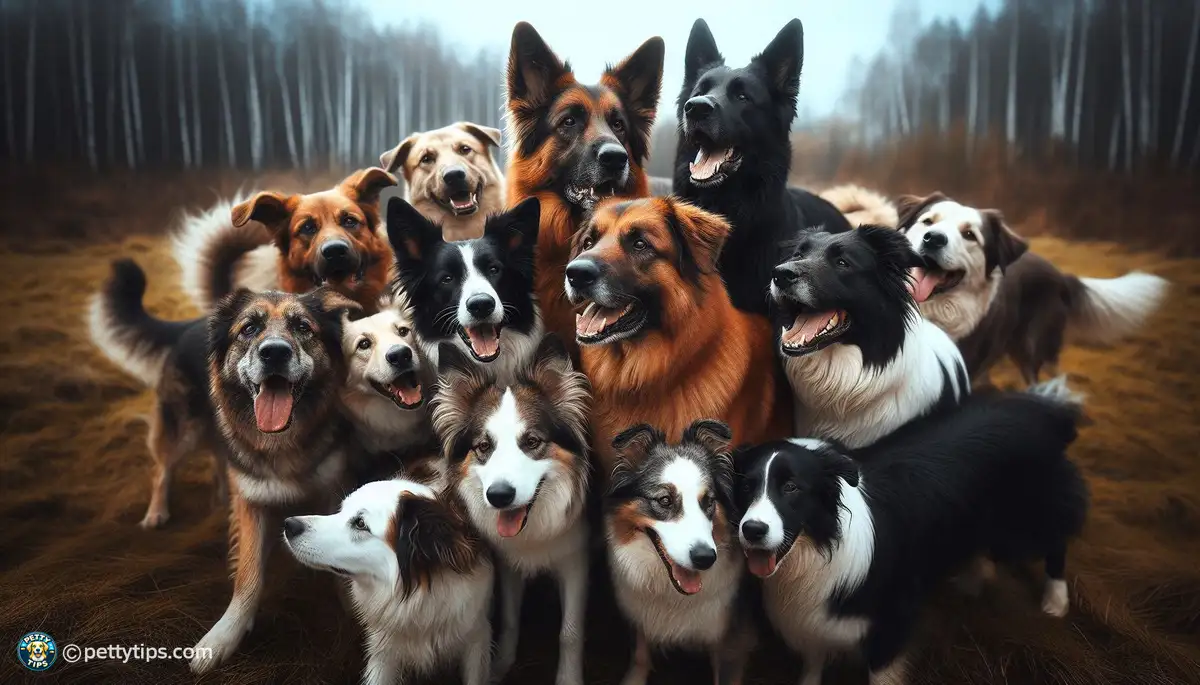
Mastering Leash Pulling: A Comprehensive Guide for Pet Parents
Luca Martino - Sep 17, 2024 - 6 min read


Socialization isn’t just about making friends at the dog park; it’s a fundamental aspect of ensuring your working dog develops into a well-rounded and confident companion. From an early age, exposing your pup to a variety of people, animals, environments, and experiences is key to preventing fearfulness or aggression later in life. Puppies have a critical socialization window, typically between 3 and 14 weeks, during which they are most receptive to new stimuli. However, socialization efforts should continue throughout your dog’s life to maintain positive behaviors and prevent behavioral issues.
A well-socialized working dog is more confident and less likely to become anxious or fearful in unfamiliar situations. Through positive interactions with people, animals, and different environments, your dog learns to adapt and remain calm in various settings. This confidence is especially important for working dogs, as they often encounter new environments and stimuli while on duty. Whether they’re assisting with search and rescue, herding livestock, or performing police work, a confident demeanor is essential for their effectiveness and safety.
Socialization isn’t just about exposing your dog to external stimuli—it also plays a vital role in strengthening the bond between you and your canine companion. When you engage in socialization activities together, such as attending training classes or exploring new environments, you’re not only providing valuable experiences for your dog but also deepening your relationship. Working dogs thrive on companionship and collaboration, and by participating in socialization efforts, you reinforce your role as their trusted handler and partner.
Introducing your working dog to various environments from an early age is crucial for building their confidence and adaptability. Start by gradually exposing them to different sights, sounds, and surfaces in controlled settings, such as your home or backyard. As they become more comfortable, gradually expand their exposure to busier environments, such as parks, city streets, and public events. Remember to always prioritize your dog’s safety and well-being, and avoid overwhelming them with too many stimuli at once.
Socializing your working dog with a wide range of people and animals helps them develop appropriate social skills and prevent aggression or fearfulness. Encourage positive interactions by exposing them to friendly strangers, children, other dogs, and various household pets. Use treats, praise, and toys to reinforce good behavior and create positive associations with new experiences. Additionally, enroll your dog in obedience classes or group training sessions where they can interact with other dogs in a controlled environment while learning valuable skills.
Socialization isn’t a one-time event—it’s an ongoing process that requires regular exposure and reinforcement throughout your dog’s life. Make socialization a consistent part of your routine by incorporating daily walks in different environments, visits to dog-friendly establishments, and interactive playdates with other dogs. As your dog matures, continue to expose them to new experiences and environments to prevent regression and ensure their continued social development. By prioritizing socialization throughout your dog’s life, you’ll help them become confident, well-adjusted companions both on and off the job.
Some working dogs may exhibit fear or anxiety in certain social situations, which can hinder their ability to perform their duties effectively. If your dog shows signs of fearfulness or anxiety, such as trembling, cowering, or avoidance behaviors, it’s essential to address these issues with patience and understanding. Gradually expose them to triggering stimuli in a controlled and positive manner, using treats and praise to reinforce calm behavior. Consider seeking guidance from a professional trainer or behaviorist experienced in working with anxious dogs to develop a tailored socialization plan.
Aggression or reactivity towards people or other animals can pose significant challenges in socializing working dogs. It’s crucial to address these behaviors early on and implement appropriate training techniques to modify their responses. Avoid exposing your dog to situations that trigger aggressive behavior and instead focus on desensitization and counterconditioning exercises to change their emotional response. Consult with a qualified trainer or behaviorist who can assess your dog’s behavior and provide guidance on effective management and training strategies.
Socialization can be a gradual process, and it’s essential to approach it with patience and persistence. Every dog is unique, and some may require more time and effort to overcome socialization challenges than others. Celebrate small victories and progress, and don’t be discouraged by setbacks along the way. With consistent effort and positive reinforcement, you can help your working dog become a confident, well-socialized companion who excels both on the job and in everyday life.